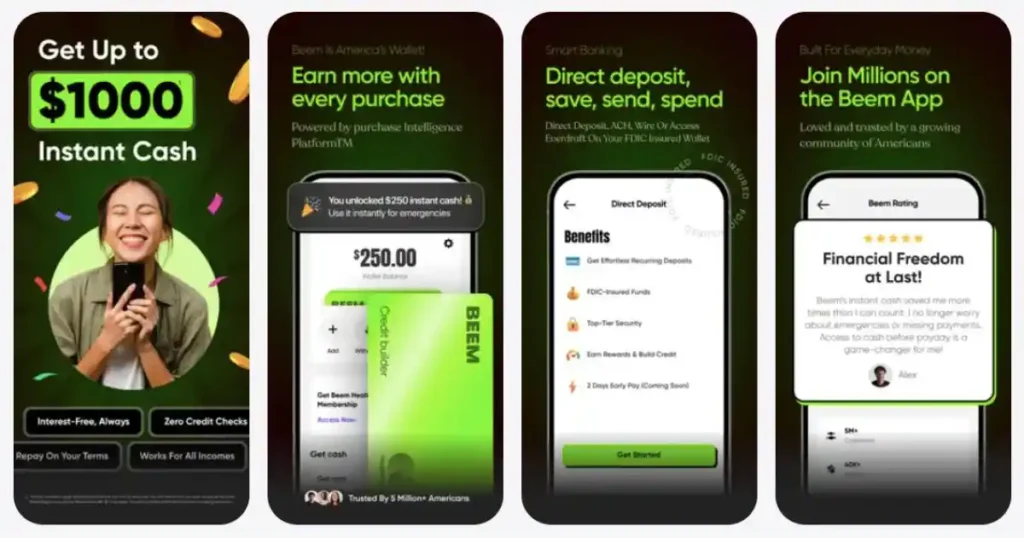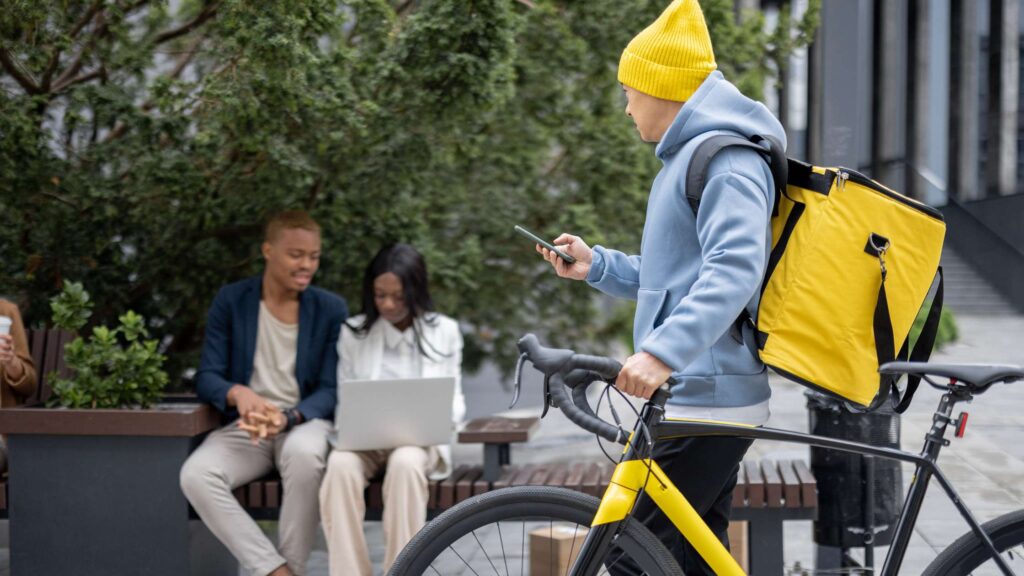Helping someone you care about can be exciting. It is one of the most fulfilling and emotionally complex things you can do. You want to show up to offer support. This way, you can ease their burden. But what happens when helping others puts your financial or emotional well-being at risk? Many of us have felt the tension between compassion and self-preservation. It is especially for those who, when asked for a loan, are not comfortable giving.
That’s where a shift in perspective becomes powerful. Proper support doesn’t always mean handing over money. In fact, lending can sometimes create more stress, resentment, or dependence for both the giver and the receiver. The good news? There’s a better way to help: one that protects your peace and offers meaningful aid.
Access-based support is changing the way we care for one another. Tools like Beem Pass make it easier. It provides tangible, targeted help to your loved ones. It includes things like transportation, food, or job-related resources, without cash complications. It’s a modern, sustainable way to be generous without overextending yourself.
Let’s explore how helping without lending can deepen trust, strengthen relationships, and offer real empowerment.
The Hidden Costs of Lending Money
Lending money to someone you care about often feels like the right thing to do, but it can have unexpected emotional and financial consequences.
Emotional Strain
What begins as a generous gesture can quickly become emotionally complicated. When repayment is delayed—or doesn’t happen at all, you might feel full of anxiety, disappointment, and even resentment can surface. Conversations grow awkward, and slowly, avoidance creeps in. What was once a strong bond starts to feel fragile or transactional.
Financial Risk
Helping someone out financially shouldn’t mean hurting yourself in the process. But too often, people extend loans they can’t truly afford to give. It can lead to missed bills, overdraft fees, or delayed savings goals. The desire to help can quietly erode your own stability. It will turn support into self-sacrifice.
Relationship Impact
Money has a way of magnifying tension. Studies show that nearly half of personal loans within families can affect relations. Most loans between friends or family members lead to damaged relationships, even with the best intentions. It can create a power imbalance or emotional debt that lingers far longer than the money itself.
Recognizing these hidden costs doesn’t make you less generous. It makes your support more sustainable and grounded in mutual respect.
Why We Feel Compelled to Lend
When friends or family ask for financial help, the desire to say yes is often overwhelming. It stems from deep empathy. You might have a genuine desire to ease someone’s struggle. But this impulse can quickly turn into emotional turmoil. It will lead to feelings of guilt, obligation, and inner conflict.
Guilt and Obligation
The pressure to say yes comes from wanting to show love and care. But the fear of letting someone down is the most common case. We feel like we’re being selfish if we don’t help. This is true even when doing so might negatively affect our own well-being. This guilt often clouds our decision-making. It makes us feel obligated to lend—even if it’s not in our best interest.
Social Norms
There’s a deep-rooted societal expectation that we should help those we love. It is particularly when they’re in financial distress. Many people feel that saying no is selfish, even when it’s the healthiest choice for both parties. This cultural norm can create a false sense of duty. It pressures us to act against our own boundaries.
The Emotional Burden of Saying No
Turning someone down for financial help often brings its own emotional weight.
- The fear of damaging a relationship,
- causing disappointment,
- or being seen as unsupportive
It can lead to lingering guilt long after the decision is made. The emotional burden of saying no is real. It can make us second-guess our choices, even when we know they’re right.
Understanding that setting boundaries is not only okay but necessary. It is essential for maintaining peace and relationships. It’s a reminder that true support doesn’t always mean saying “yes” to every request. It means offering help in sustainable and healthy ways for both parties.
The Psychological Relief of Helping Without Lending
Empowerment Over Exhaustion
When you help someone through access, you lift them up without draining yourself. It is like sharing resources through Beem Pass. It’s like offering a lifeline, but without the stress of sacrificing your own time, money, or emotional energy. You can help without feeling overwhelmed. Without feeling burned out, you can help out, which is a win for both sides.
No Strings Attached
One of the most significant benefits of access-based support is that it comes without the awkwardness of expecting repayment. When you help without lending money, no unspoken expectation hangs over the relationship. You and the person you’re helping can feel good knowing the support is genuine help, with no strings attached, and no pressure.
Quiet Generosity
You can use tools like Beem Pass, which lets you provide help quietly yet respectfully. You can offer support without making the other person feel like they’re dependent on you. It will avoid the situation that turns them into a “charity case.” It’s a dignified way of showing care without making anyone uncomfortable.
How Access-Based Support Changes the Dynamic
Access-based support is more than an alternative to lending money—it’s a mindset shift that transforms how we care for others while protecting ourselves.
From Dependency to Empowerment
Access-based support shifts the focus. It goes from rescuing someone to equipping them. Instead of offering a one-time solution through cash, you’re providing tools. It can also be resources or connections that help the other person move forward on their own. This encourages problem-solving. It also involves confidence and independence. You need to break the cycle of dependency and replace it with real progress.
Protecting Personal Boundaries
Offering access instead of money allows you to support others. It is done without sacrificing your own stability. It sends a clear, respectful message: “I care, and I want to help—but not at the cost of my own well-being.”
This boundary protects you from burnout. It also keeps your relationships healthier in the long run. This way, you’re not expected to serve as a financial fallback.
Sustaining Trust and Connection
When money enters a relationship, so can tension, guilt, and imbalance. By removing the transactional element and focusing on access-based support, you preserve the emotional connection. Trust deepens because both parties know that the help is thoughtful, not obligatory, and relationships remain rooted in care, not debt.
Real-Life Scenarios
Preserving Relationships Through Access, Not Cash
When Maya’s close friend lost her job, she wanted to help—but she knew lending money might create long-term tension. Instead, she used Beem Pass to cover her friend’s groceries for a month. Her friend appreciated the gesture, and their bond stayed strong without the stress of unpaid debt looming over them.
Maya shared that in the past, even small loans had led to discomfort when repayment was delayed or forgotten. This time, the conversation was open, and the intention was clear. This way, both felt respected. Maya didn’t feel like a burden, and her friend didn’t feel financially overextended.
Family Support Without Financial Strain
Raj’s cousin often turned to him during financial crunches, and past loans had strained their relationship. This time, Raj chose a different route—he offered access to a transportation pass and shared job resources. His cousin eventually landed part-time work. This is why, for the first time, Raj felt like he had helped without enabling dependency or jeopardizing their family trust.
They were able to talk more honestly. Their conversation was free from the awkwardness of debt. Raj also noticed his cousin felt more motivated and empowered—something that rarely happened when money was just handed over. It turned out to be a turning point in their dynamic.
Relief Over Resentment
A single mother named Angela shared that using Beem Pass to support her sister with essential needs allowed her to maintain peace of mind. “It felt good to help,” she said, “without the fear of losing money or damaging our relationship.”
Angela had previously lent cash that was never returned, leading to months of tension. With Beem Pass, she knew exactly what was being covered and felt reassured that she could still contribute meaningfully. Her sister also expressed gratitude for the dignity of receiving help. It didn’t make her feel indebted or embarrassed. Their trust was preserved. This way, resentment never had a chance to grow.
Practical Steps: How to Help Without Lending
Supporting someone doesn’t have to mean opening your wallet. There are practical, respectful ways to help without putting yourself at financial risk.
1. Use access tools.
Platforms like Beem Pass allow you to share essential resources. It includes access to transportation, groceries, or health services, without handing over cash. These tools offer a safer and more controlled way. It provides meaningful aid. It also ensures that support is used effectively.
2. Communicate openly.
Set clear and kind boundaries from the start. Explain why you’re offering access instead of money: perhaps to protect your own stability, to encourage empowerment, or to prevent financial strain on both sides. Being transparent helps avoid misunderstandings and builds trust.
3. Recognize the power of quiet support.
Sometimes, consistently showing up, listening, or offering encouragement behind the scenes is more potent than direct intervention. You must respect the dignity of the person you’re helping. You must meet them where they are, not where you think they should be.
Helping without lending is a skill, and it gets stronger with mindful practice.
Frequently Asked Questions
Q: What if the person needs more than you can provide through access?
A: It’s okay to recognize your limits. You’re not obligated to solve every problem. If their needs exceed what you can offer, you can consider referring them to professionals. It also involves community resources, or support networks better equipped to help. Your role isn’t to carry their burden alone but to be a bridge where possible.
Q: How do you handle requests for money after you’ve shared access?
A: You must stay honest and consistent. You can gently remind them of the support you’ve already offered. You can reinforce your boundaries by saying, “I’m not in a position to lend money, but I’m still here to help in other ways.” Clear communication can help avoid confusion. It will keep the relationship healthy.
Q: Is it really supportive if you’re not giving cash?
A: Absolutely. Support often comes in many forms. It can be guidance, referrals, time, and emotional presence. Often, non-financial help leads to more lasting results. It empowers outcomes than a temporary cash solution.
Conclusion
Helping others doesn’t always have to involve lending money. It can be done without providing direct financial support. In fact, choosing to help without lending can be one of the most compassionate things you can do. It is a sustainable way to show up for someone. It is impactful while also protecting your own emotional and financial well-being. It allows you to set healthy boundaries. You must avoid resentment and maintain the strength and balance of your relationships.
Such support can take many powerful forms: sharing resources, offering your time, connecting someone with opportunities, or simply listening and guiding them with care. These acts of access-based support preserve your stability and empower others in meaningful, lasting ways.
We often feel pressured to say “yes” out of guilt or obligation. But proper support comes from a place of thoughtful intention, not sacrifice. By shifting how we offer help, we can foster a culture of respect. This will provide accountability and mutual growth.
Let’s normalize helping without lending—and make space for support that uplifts everyone involved.














































